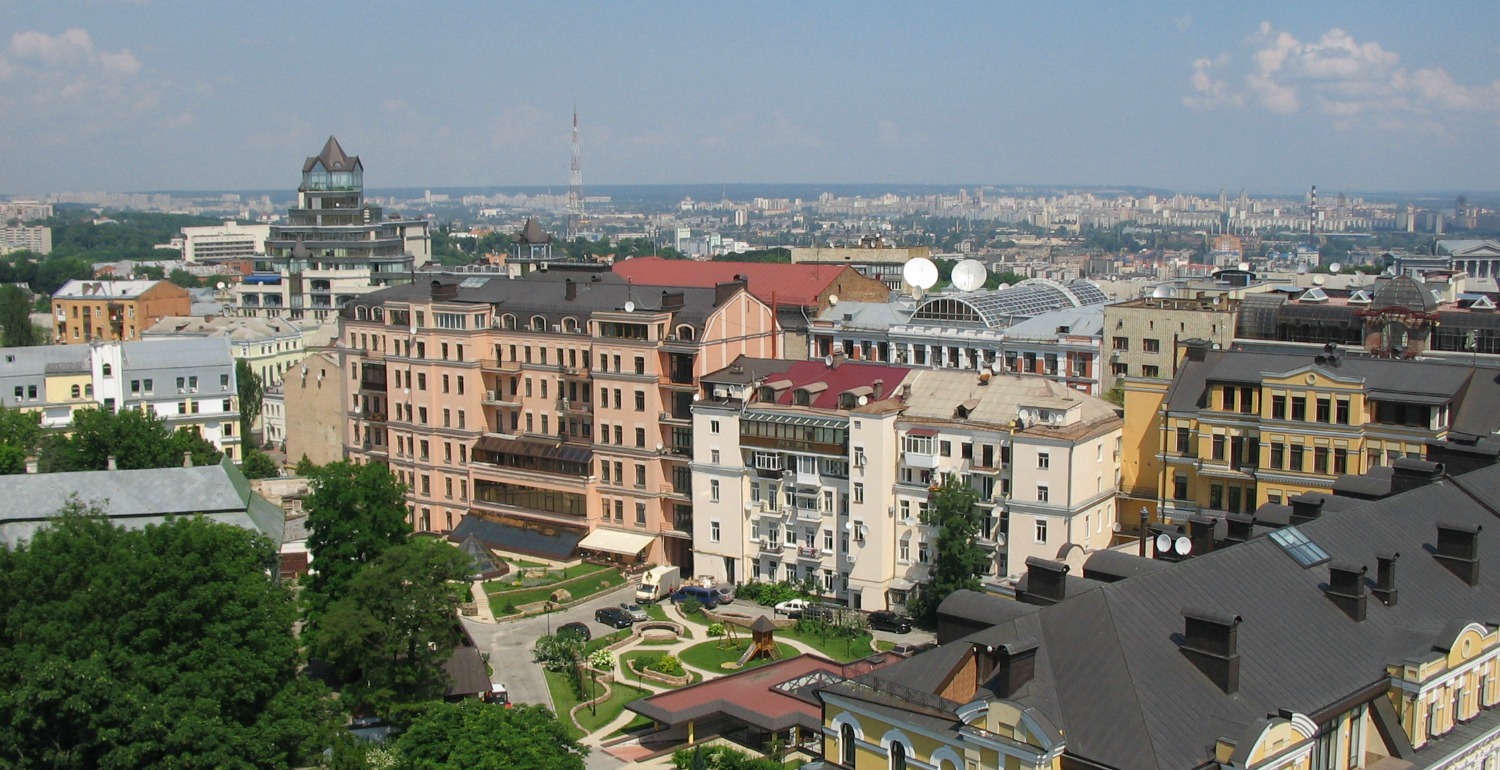By Orest Deychakiwsky, Staff Advisor
United States Helsinki Commission Co-Chairman Rep. Christopher H. Smith (R-NJ) and Ranking Commission Member Rep. Benjamin L. Cardin (D-MD) met with Ukrainian officials, non-governmental organizations, and religious leaders in Kyiv, Ukraine on February 26-27, 2005. The delegation also laid wreaths at the Memorial to the Victims of the 1932-33 Terror-Famine and at the Babyn (Babi) Yar memorial.
The Commissioners had substantive and far-reaching meetings with Ukraine’s State Secretary Oleksandr Zinchenko, Foreign Minister Boris Tarasyuk, Justice Minister Roman Zvarych, Minister of Transportation and Communications Yevhen Chervonenko, and Chairman of the parliament’s Committee on Organized Crime and Corruption Volodymyr Stretovych. The meetings covered many topics, including the lifting of the Jackson-Vanik amendment and granting normal trade relations (NTR) status as well as facilitating Ukraine’s entry into the World Trade Organization (WTO).
Commissioners Smith and Cardin were impressed with the political will and determination of Ukraine’s Government officials as well as the non-governmental organizations to work for positive change in Ukraine.
As an original cosponsor, Co-Chairman Smith noted the recent introduction of a bill by House International Relations Committee Chairman Rep. Henry J. Hyde (R-IL), which would grant Ukraine NTR. Commissioner Cardin affirmed his support for NTR and Ukraine’s joining WTO, noting that it was critical for Ukraine to conclude intellectual property rights talks with the United States. Discussions also centered on human trafficking, corruption, the rule of law and human rights issues such as torture, the Gongadze case, sustaining media freedoms, and on how the United States can best assist Ukraine during this time of historic transition.
State Secretary Zinchenko expressed pleasure at the current state of U.S.-Ukrainian bilateral relations, observing that both sides now have trust in each other. He outlined President Viktor Yushchenko’s priorities, including combating corruption, extending a hand to business, protecting private property, promoting respect for the rule of law – especially in government entities such as the Interior Ministry, tax police and the security services – as well as promoting the further development of civil society. Secretary Zinchenko also emphasized the importance of U.S. investment in Ukraine. The Commissioners and Ukrainian officials also discussed in detail HIV/AIDS in Ukraine, which Zinchenko described as very acute and far-reaching, and the proposed new Chornobyl shelter that will cover the crumbling old sarcophagus.
Minister of Justice Roman Zvarych outlined the Justice Ministry’s priorities to encourage and ensure the rule of law. Securing human rights and liberties would include such measures as getting the police to pay attention to procedural norms and urging parliament to adopt necessary civil and administrative procedural code changes. With respect to combating corruption, Zvarych hopes to soon unveil a comprehensive “Clean Hands” program, including a code of ethics. Cleaning up the court system is another priority, and the Justice Ministry has plans to take a variety of steps against judges engaged in corrupt practices. The delegation and Zvarych discussed the issues of human trafficking, torture of detainees, the Gongadze case, restitution of religious property and national minority issues.
Chairman Volodymyr Stretovych and representatives of the International Organization for Migration (IOM) gave a comprehensive briefing on the problem of human trafficking in Ukraine, what steps are being taken by the government and NGOs to combat this scourge and plans on further addressing this important issue. A key concern was improving law enforcement cooperation between Ukraine (as a country of origin for victims of trafficking) and countries of destination. U.S. Embassy Deputy Chief of Mission Sheila Gwaltney hosted a meeting with U.S. Embassy, U.S. Agency for International Development, and FBI officials during which U.S. efforts to assist the new Ukrainian Government in promoting the rule of law and combating human trafficking were discussed. The delegation also visited an IOM-sponsored medical rehabilitation center for trafficking victims. Human trafficking, as well as religious rights issues, were also discussed in a meeting with Papal Nuncio Archbishop Ivan Jurkovich.
Ambassador John Herbst organized and hosted a discussion with NGO representatives from Freedom House, Institute for Mass Information, the Chernihiv-based organization Dobrochyn and the Ukrainian Helsinki Human Rights Union. Mykhaylo Horyn, former Soviet political prisoner and head of the pro-independence movement Rukh in the early 1990s, also participated in the meeting. The delegation met with Jewish representatives, including the new Minister of Transportation and Communications Yevhen Chervonenko who is also Vice-President of the Eurasian Jewish Congress. They discussed matters pertaining to Ukraine’s Jewish community, assessing them positively.
Foreign Minister Tarasyuk expressed gratitude to the Helsinki Commission for its active work in support of democracy in Ukraine and stated that the clear position of Congress and the U.S. Government, including support for a strong contingent of international election observers during the recent elections, effectively helped Ukrainian democracy. In raising Jackson-Vanik graduation, market economy status, and the WTO, Minister Tarasyuk cited strong readiness and willingness on the part of the Ukrainian Government to remove obstacles on their part, including a promise to submit in the Rada shortly a draft law on intellectual property rights. Minister Tarasyuk and the Commissioners also discussed the vital importance of ongoing OSCE election observation, Ukrainian-Russian relations, and Ukraine’s strengthened role in resolving the long-festering Moldova-Trandniestria conflict.








